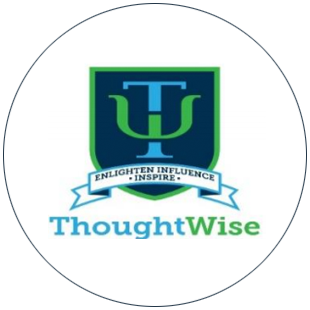2025-08-22

When your child struggles with reading, math, or writing despite putting in significant effort, it’s natural to feel concerned. You might wonder why certain subjects seem harder for them than others, or why they become anxious or discouraged when school is mentioned.
At Thought Wise Counseling & Neuropsychology Jacksonville, we understand these concerns and have worked with many families seeking answers. A learning disability evaluation can offer clarity. It helps you understand your child’s learning profile and identify the most effective ways to support them.
Without a clear understanding of what’s happening, school can become a source of stress and confusion. Children may question their abilities or start to believe they are not smart enough. A learning disability evaluation offers more than a diagnosis.
It provides insight into your child’s strengths, challenges, and the underlying factors affecting their academic progress. This deeper understanding can open the door to targeted support and improve both performance and self-esteem.
Many parents seek an evaluation after noticing signs like consistent homework struggles, frequent frustration, or an ongoing reluctance to engage with schoolwork. Others may observe difficulties following directions, retaining information, or staying organized.
In some cases, teachers mention concerns about focus, memory, or slow academic progress. These patterns can point to an underlying learning issue, and a comprehensive learning disability evaluation helps identify what’s really going on.
Our approach begins with understanding your child’s history and current experiences. We ask questions about developmental milestones, classroom behavior, and areas where support has or hasn’t worked. This context is important in forming a complete picture.
The core of the process is individualized testing that looks at various aspects of cognitive functioning. We assess memory, processing speed, attention, verbal and nonverbal reasoning, academic achievement, and sometimes fine motor coordination. We also consider whether other factors like anxiety or ADHD are playing a role.
Children often enjoy the process because we make it feel approachable. Many describe it as working through interesting tasks or puzzles rather than taking a traditional test. We design the experience to be supportive so that each child can show their true abilities.
One part of a learning disability evaluation that often surprises parents is how much we look at the emotional side of things. Learning struggles rarely exist in a vacuum.
Over time, the frustration of falling behind can chip away at a child’s self-esteem, spark anxiety, or even lead to withdrawal from activities they once loved. We pay close attention to these patterns because emotional health and academic success are deeply connected.
During our evaluation process, we take time to understand how your child feels about school, friendships, and themselves. Sometimes what starts as a question about reading or math opens a door to important conversations about stress, perfectionism, or fears of being judged. By weaving these insights into our recommendations, we can suggest strategies that support not just classroom performance but also resilience and emotional balance.
At Thought Wise, we believe helping a child thrive means caring for the whole person. That’s why our assessments and follow-up care always look at both cognitive and emotional well-being, so kids and families feel stronger and more hopeful moving forward.
After the evaluation, families receive a detailed explanation of the findings. We highlight not only challenges but also areas of strength that can support progress. For example, your child might struggle with decoding words but have strong verbal reasoning skills that can be used to build reading comprehension.
This information helps guide school support plans such as IEPs or 504 Plans. We also offer suggestions that can be used at home, with tutors, or in therapy. For many families, finally understanding the “why” behind their child’s struggles brings enormous relief.
Many parents ask how our evaluations at Thought Wise compare to those provided through the public school system. School-based assessments serve an important purpose, often helping determine if a student qualifies for special education services under federal or state law. These evaluations are typically structured to meet eligibility criteria, which can make them more limited in scope and depth.
In contrast, our private learning disability evaluations take a broader and more individualized approach. Since we are not bound by school district protocols or resource constraints, we can assess a wider range of cognitive functions, academic skills, and emotional influences.
This flexibility allows us to explore your child’s unique learning profile in greater depth. It helps identify subtle patterns or co-occurring concerns such as ADHD, anxiety, or executive functioning challenges, which are sometimes overlooked in standard school evaluations.
We also take time to sit down with you and review the findings in full. Instead of a quick summary or technical report, we walk through the results together, discuss each section in plain language, and answer your questions thoroughly.
You will receive a detailed written report with practical, research-backed recommendations that can be shared with your child’s educational team, tutors, or therapists. This comprehensive approach gives families not only clarity but also a clear direction for next steps.
A key benefit of a professional evaluation is how effectively it supports your child’s educational progress. Many families reach out because they’ve heard about support tools like 504 Plans or IEPs but don’t know where to begin.
Our evaluations offer the documentation schools often require to provide formal accommodations. More importantly, we help pinpoint exactly what kind of support will help your child learn more effectively and with less frustration.
We frequently partner with families and schools to convert the insights from our assessments into practical tools that work in the classroom. This might include extended time on assignments or tests, structured reading interventions, modified instruction, or adjustments in workload.
These supports are never one-size-fits-all. They are tailored to your child’s learning strengths and challenges, helping teachers and staff understand how to teach in ways that align with how your child processes information.
This collaboration often leads to improved academic performance, but it also reduces stress and builds trust between the student and their educators. Instead of feeling like they are falling behind or misunderstood, children start to experience school as a place where they can succeed.
Delays in addressing learning concerns can lead to a cycle of academic struggle, lowered self-esteem, and increased emotional distress.
Many students compensate for their difficulties for a time, but as they enter middle or high school and the demands increase, their coping strategies may no longer work. Acting early allows us to intervene before these challenges become more deeply rooted.
When we catch learning differences at a younger age, we can introduce targeted strategies that prevent long-term frustration. It’s not only about improving grades, though that is often a welcome outcome. It’s about giving your child tools to understand themselves, to advocate for their needs, and to stay engaged in their education with confidence.
Children thrive when they know the adults around them believe in their potential. Having an accurate picture of how they learn helps them feel seen and supported. Over time, this self-understanding encourages resilience, independence, and pride in their efforts.
No two children learn in the same way, which is why our evaluations are never cookie-cutter. Led by Dr. Ailyn Penate, a licensed clinical neuropsychologist, our Jacksonville team brings together deep clinical knowledge with compassion and warmth. Every assessment is tailored to your child’s individual history, needs, and concerns.
Throughout the process, we welcome parents as partners. Your insights help guide our understanding, and we keep communication open from the first consultation to the final feedback session.
Our goal is not just to give you a diagnosis or a list of terms; it’s to offer an understanding that empowers your family and helps your child thrive at home, at school, and beyond.
Choosing to move forward with a learning disability evaluation is a decision grounded in love and hope. It means asking difficult questions, seeking answers, and advocating for your child’s future. At Thought Wise LLC, we are honored to walk that path with you.
We provide more than just test results; we offer clarity, connection, and support so that your child can move forward with strength, confidence, and the tools they need to grow. Every step of the process is approached with care, combining professional expertise with a genuine commitment to your child’s well-being.
Whether you’re just beginning to ask questions or already navigating a complex school experience, we’re here to help you find answers that bring both insight and peace of mind. With the right information, thoughtful recommendations, and a team that truly listens, you and your child don’t have to face these challenges alone.
Contact us today to get started.

ThoughtWise Clinical Psychology and Neuropsychology provides quality services that guide treatment, enrich life, and enhance our overall mental health and cognitive abilities in Jacksonville and throughout the state of Florida. On their blog, they share insightful tips on managing and improving mental health and clarity in day to day life.

Contact us today to see if Thought Wise is the right fit for you.